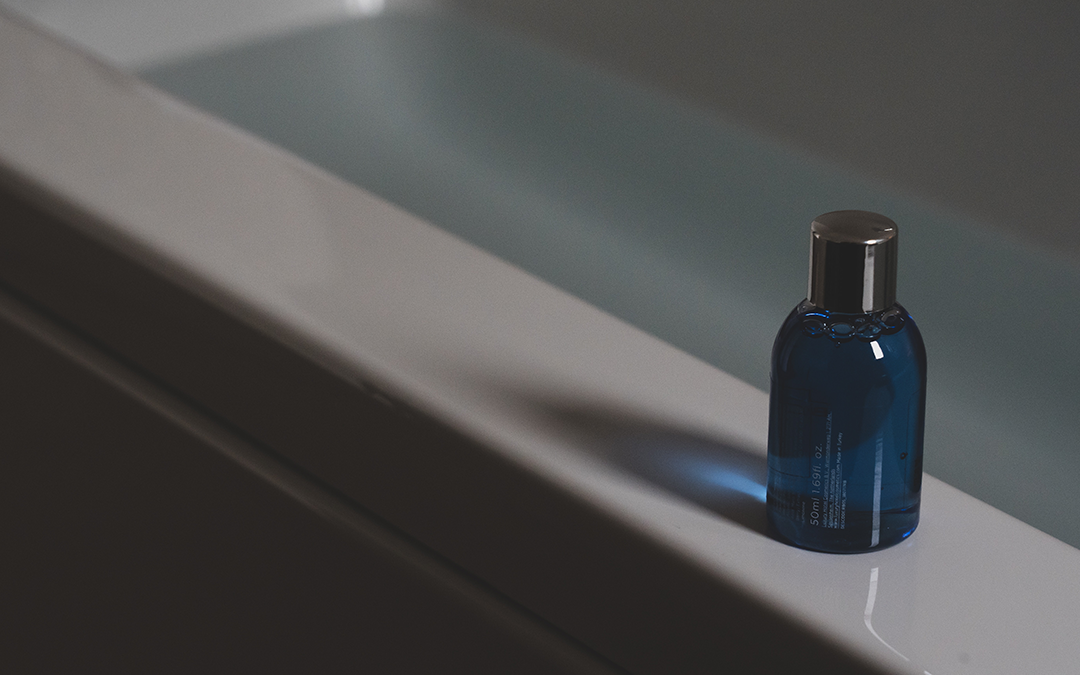Did you know your personal care products could make you sick? Many of the items you use every day may contain ingredients associated with serious illness. Here are some of the cancer-causing ingredients potentially hiding in your bathroom cabinet.
Parabens
These synthetic compounds—methylparaben, propylparaben, ethylparaben, butylparaben, and isobutylparaben—are commonly used as preservatives. They’re found in a huge range of products, including deodorant, lotion, shampoo, toothpaste, and sunscreen. While the Food & Drug Administration (FDA) sets limits according to the level of parabens considered “safe” in each product, many experts worry about the cumulative effects of paraben exposure. Research indicates a link between parabens and breast cancer, with studies showing the presence of parabens in breast tumors. Concerned about these potentially carcinogenic effects, many health advocates have called for a ban on parabens like the one instituted by the European Union (EU).
Formaldehyde
According to the Environmental Working Group, this carcinogenic impurity is released by preservatives—including diazolidinyl urea, imidazolidinyl urea, DMDM hydantoin, quaternium-15, 2-bromo-2-nitropropane-1,3-diol, and sodium hydroxylmethylglycinate—frequently used in personal care products. The International Agency for Research on Cancer (IARC), part of the World Health Organization, classified formaldehyde as carcinogenic to humans in 2004 after 26 scientists from 10 countries evaluated the available evidence on its carcinogenicity. Even the Cosmetic Ingredient Review, an industry-funded panel with a vested interest in persuading people about ingredient safety, recommends no more than 0.2% formaldehyde in cosmetic products.
Avobenzone
This UV filter commonly used in sunscreen is considered safe on its own but may break down into hazardous chemical compounds when it comes into contact with chlorinated water (like in a swimming pool) and ultraviolet radiation (from the sun). In conducting experiments simulating a real situation where sunscreen is applied to swimmers’ skin, scientists in Moscow found avobenzone broke down to form organic compounds belonging to the classes of aromatic acids and aldehydes, phenols, and acetyl benzenes—which are toxic. As chemist and project author Albert Lebedev told phys.org, “On the basis of the experiments, one could make a conclusion that a generally safe compound transforms in the water and forms more dangerous products.” Lately, I’ve been using sunscreens like zinc oxide that have a real barrier and less toxins.
Phthalates
In addition to being used to make plastics flexible, phthalates can be found in everything from bug spray to laundry detergent. These chemicals are so ubiquitous that, according to the Huffington Post, 95% of us have detectable amounts of phthalates in our urine. Why is this a problem? Not only are phthalates associated with certain cancers, they also disrupt hormone function, which may lead to infertility and other health problems. A 2007 study even found concentrations of phthalate metabolites in urine were associated with increased waist circumference and insulin resistance in adult males.
Talc
This drying mineral is used to make baby powder as well as foot and body powders for adults. As the American Cancer Society explains, talc in its natural form contains asbestos, a known carcinogen, but talcum products containing asbestos have been banned since the 1970s. While asbestos-free talc is generally considered safe, some studies involving the exposure of lab animals to it have shown tumor formation. Research also indicates a link between talc and ovarian cancer, and, according to Bloomberg, a jury recently ordered Johnson & Johnson to pay more than $110 million to a Virginia woman who said the company’s talcum products caused her ovarian cancer. The American Cancer Society concludes that, although there isn’t much evidence that other forms of cancer are associated with talcum powder use, those who are concerned may want to avoid these products.
Triclosan
This antibacterial ingredient found in household products has been linked to liver cancer. A 2014 study published in the Proceedings of the National Academy of Sciences found mice given food or water containing triclosan for six months were more susceptible to liver tumors compared to control groups. Other research suggests it can negatively impact hormone cycles, cause muscle weakness, and lead to antibiotic resistance. In September of 2016, the FDA banned triclosan and 18 other chemicals from commercial hand soap and body washes, but it can still be found in some toothpastes—The New York Times reports the bestselling brand Colgate Total convinced the FDA that the benefits of triclosan in toothpaste outweigh the risks.
Are you getting the nutrients you need for long-term health? Download my Top 10 Supplements For Men PDF to learn about the most critical supplements you need.
Myles Spar, MD, MPH is board certified in Internal Medicine and in Integrative Medicine. As a clinician, teacher and researcher on faculty of two major medical centers, he has led the charge for a more proactive, holistic and personalized approach to care that focuses on cutting edge technology and preventative care. Dr. Spar has been a consultant with the NBA, presented a TEDx Talk, appeared on national television, and been featured in publications such as the Men’s Journal and the Los Angeles Times. He was most recently National Medical Director and Chief Medical Officer of a national medical practice, but is available to consult with individual patients interested in a personalized approach to optimal performance and health.


